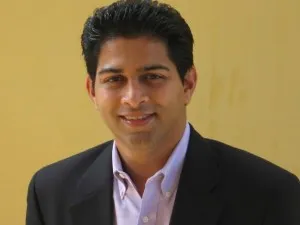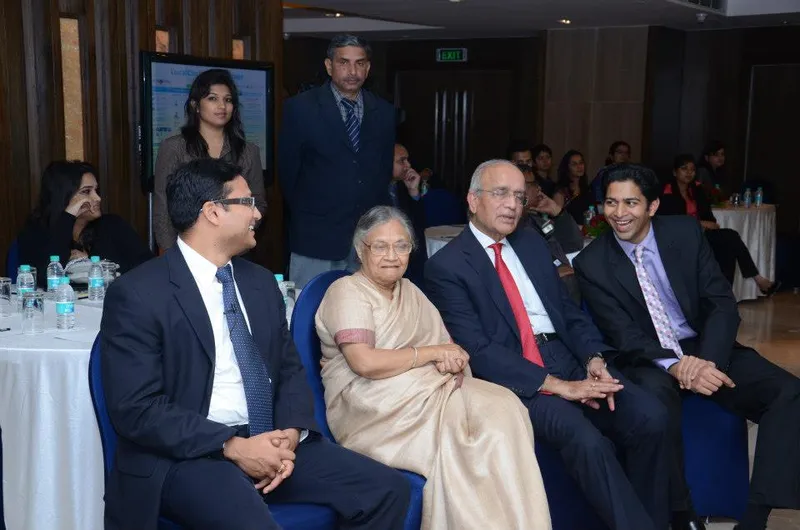LocalCircles enlists 2 lac Indians (and more) for a Swachh India

Before leading a subsidiary of Boeing in India, Sachin Taparia lived in the US for 10 years. But, after experiencing life in India, Taparia realised the nation needed a platform to build trust, transparency and accountability in society by bringing citizens together.
That’s the short story of how Taparia started LocalCircles, a community network focused on governance and urban daily life. Taparia says, “It’s a for-profit initiative, and Godrej is one of our investors. We’ve just raised capital with another set of investors.
When we started last year, we basically started out with building neighbourhood networks followed by networks for various causes, needs, healthcare, you name it. That’s how we started and operated for about nine months to a year.”
“Very soon, we realised the key aspects of urban daily life, in addition to community, is governance.”
LocalCircles’ latest venture is to partner with the Ministry of Urban Development to help the ‘Swachh Bharat’ mission turn into reality, one that is practical and efficient. The idea is to collect inputs from citizens and forward them to the Ministry and the Prime Minister’s Office.
“The Swachh Bharat mission is a classic example of citizens coming together. So, this partnership is to connect citizens with the Ministry as the founder of the community.”
More than 1.7 lakh users have already signed up for Swachh Bharat, so it has immense potential to turn the tables in this area of reform and development. LocalCircles has already submitted the white papers on public markets and municipal corporations in India. Nearly 200,000 citizens offered their inputs into what’s working and what isn’t in their districts and constituencies.

“The next step on that front is going to be bringing this down to the constituency level followed by neighborhoods, connecting citizens so they can stay connected and drive on the ground cleanliness action. 27 constituency circles have already been initiated covering the 5 major metros,” says Taparia. Eventually, Circles will see the involvement of local state governments, municipal corporations, MLAs, MPs and NGOs. The whole point is to drive action through local communities from their simplest formations (neighbourhoods) to big constituencies. LocalCircles hopes to make this format available for other ministries, too. In a way, it literally democratises ‘democracy’ as it functions in India.
Today, LocalCircles has the credit for establishing the largest blood network in Delhi.
Taparia shares a small incident to highlight how effective these communities are:
“Last year, there was a lot of flooding in Delhi in July-August. There’s a Vasant Vihar colony in the city. It’s a private community present on LocalCircles, too. A lady complained about how the drains outside her house were choked, and she had sewage in her house. She was extremely frustrated. She went to the local RWA office and submitted a complaint. She knew about the LocalCircles community and signed up. She said her house was a mess, and didn’t think the RWA office could help. There were about 300-400 houses connected to this network. In three-four hours, 10 people responded with information on complaint redressal system of the government, municipal corporation contacts, etc. By the end of the day, the Delhi Jal Board came by and resolved her problem.”
It’s this knowledge-sharing and problem-solving role of LocalCircles that Taparia hopes to scale to a national level.
“What we’ve done is launched a national community with two lakh people giving policy-based inputs and sharing case studies. For instance, how citizens of Kanpur are coming together and cleaning the city by spot-fixing 300 places. Our goal is for the Ministry to incentivise and reward these case studies,” says Taparia.
“We even gave inputs to the railway budget. This Make Railways Better community has about 40,000 citizens. We gave 16 inputs of which 11 were part of the budget by the Government.”

LocalCircles is a mobilising force, and is quick to remind that they don’t do ground campaigns like the popular Ugly Indian. Their work relates to actual governance, including policy change and collective action, both at national and local levels.
“Like, we did a poll on telecom services in India,” says Taparia, “to get a sense of how they’re working. There were five questions, and 35,000 people voted in that poll. It was about rate of call drops, state of voice service, questions like ‘Do you trust your telecom services?’ Fifty four percent said ‘No’ in terms of billing issues, charges, etc. When asked, ‘Do you actually think the government has done enough in the last few years in this sector?’ 77% said ‘No’.”
LocalCircles still has a long way to go before it is a permanent and natural fixture in Indian society. Until then, Taparia says, “We’re focused on rolling out the platform to lots of people. Even today, we allow people by invitation and approval only. As we roll out more networks for ministries, people will be able to come and rate businesses and services, and find trusted information from their own communities. We have to roll it out to a lot more people, and we’ll eventually have LocalCircles in all the metros.”







